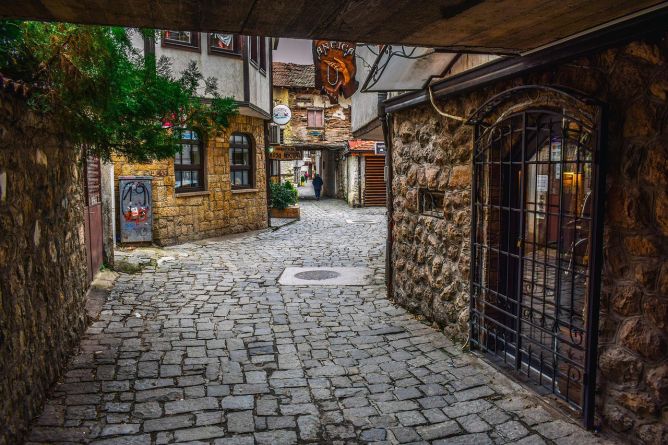
North Macedonia (Republic of North Macedonia) is a sovereign state located in South-Eastern Europe on the Balkan Peninsula. It was previously known as the Former Yugoslav Republic of Macedonia and changed its official name to North Macedonia in 2019. It has no access to the sea. But the country has 2 large lakes: Ohrid, which is one of the oldest and deepest lakes in Europe, and Lake Prespa, which is also shared with Greece and Albania. The country borders Albania, the partially recognized Republic of Kosovo, Serbia, Bulgaria and Greece. The capital is Skopje. The form of government is a parliamentary republic, the head of state is the president.
Climate. The climate in North Macedonia varies from temperate continental in the north to Mediterranean in the south. The country has four characteristic seasons, with warm summers and cold winters. Summers are usually hot and dry. Average daytime temperatures range from 30°C to 40°C. Winter can be cold and snowy, especially in mountainous regions. Average temperature is from -2°C to 7°C.
Number. The population in 2021 was 1,836,713.
Language. The official and national language is Macedonian. It is used in all areas of society, including government agencies, education and mass media. In addition, there are a number of dialects and local languages that are used by different ethnic groups. For example, Albanian is the second official language in some regions of the country where the Albanian population lives. Also Turkish, Serbian and Bosnian are spoken among their respective ethnic minorities.
The economy of North Macedonia is characterized by low levels of industrialization and high unemployment. Important industries are agriculture, manufacturing, construction and tourism.
The country is committed to attracting foreign investment and developing technology sectors. Social aspects include access to education and healthcare, poverty reduction and social inequality. The country also has internal ethnic and cultural differences, which require efforts to ensure sociocultural integration. Improving infrastructure, including transport and energy, is key to supporting economic growth and development. The country faces challenges in the areas of political stability and institutional effectiveness.
North Macedonia strives to integrate into the world community and join international organizations such as the European Union and NATO. This can contribute to the development of the country through the exchange of knowledge, technology and investment.

